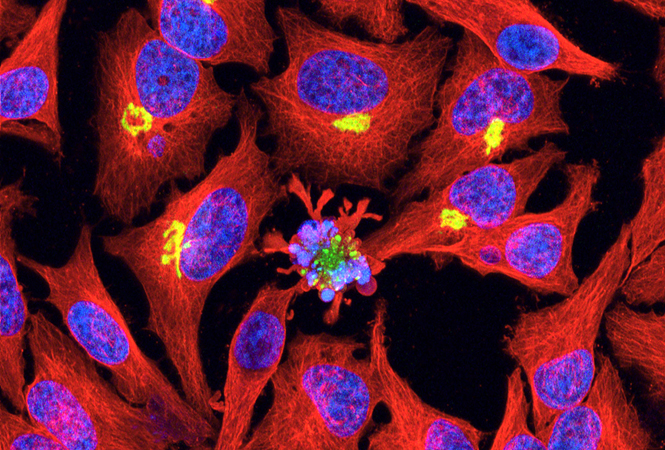Organisms respond to DNA damage by one of two cellular coping mechanisms: they either repair the genomic injury or destroy the damaged cells through a process of programmed cell death, or apoptosis. Achieving the correct balance between these two pathways is essential for maintaining genomic integrity while preventing unnecessary cell death. Now a group of Japanese scientists has discovered one of the key proteins, Cdc7, that helps cells strike that balance (link).
A team led by Tadashi Yamamoto at the Okinawa Institute of Science and Technology, in collaboration with Hisao Masai at the Tokyo Metropolitan Institute of Medical Science, exposed human cell lines to low doses of ultraviolet light to induce mild DNA damage. They found that, in response, the cells expressed a DNA replication-initiating kinase known as Cdc7 that added phosphate tags to a proliferation-regulating protein called Tob. This in turn protected Tob from being primed for degradation by a protein complex known as the proteasome. As a result, cells suppressed apoptosis and subsequently underwent DNA repair.
These pro-survival effects of Cdc7 and Tob could help explain why tumor cells often evade chemo- and radiation therapies for cancer. Blocking Cdc7 and Tob thus provides a promising way to boost the effectiveness of anticancer agents, says Yamamoto.







